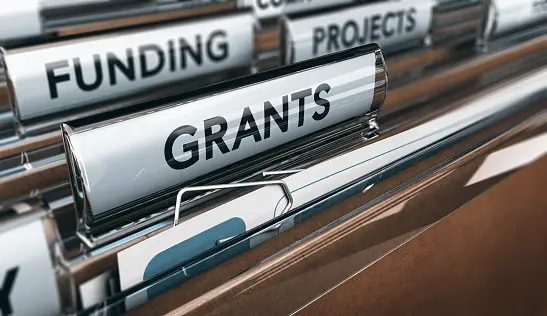Government Grants Available.
Every year, the government allocates billions of dollars in the form of grants to facilitate numerous projects that contribute to the public good. From supporting innovative research to promoting small businesses, these grants are an essential part of driving the nation’s economy.
Understanding the various types of government grants available, how they function, and the steps to secure them can immensely benefit individuals and organizations alike.
Types of Government Grants
1. Research and Development Grants: These grants are primarily offered to encourage advancements in science and technology, medicine, and other critical areas. Organizations like the National Institutes of Health (NIH) and National Science Foundation (NSF) are renowned for awarding grants for cutting-edge research. For instance, the NIH awarded a $2 million grant in 2022 to support genomic research for better cancer treatments.
2. Small Business Grants: Entities like the Small Business Administration (SBA) and Department of Agriculture provide grants to help small businesses flourish. SBA’s Small Business Innovation Research (SBIR) program is a typical example of such grants, fostering entrepreneurial initiatives in tech-related fields.
3. Educational Grants: The Department of Education provides several grants to improve education standards. The Pell Grant is a well-known example, providing financial aid to low-income undergraduate students.
4. Non-Profit Grants: The government also funds non-profit organizations that cater to various sectors, including social services, healthcare, and environmental conservation. The Environmental Protection Agency (EPA), for example, provides grants for environmental conservation projects.
5. Housing Grants: Government agencies like the Department of Housing and Urban Development (HUD) offer grants to enhance affordable housing initiatives and improve urban infrastructure.
How Government Grants Work
Contrary to loans, grants don’t require repayment, making them an attractive source of funding. However, they’re typically tied to specific project objectives and come with stringent compliance and reporting requirements.
To illustrate, consider the Community Development Block Grant (CDBG) program run by HUD. Local governments or non-profit organizations can apply for these grants to provide decent housing and create job opportunities for low and moderate-income people. If awarded, the grantee must provide regular reports showing how funds are being utilized to meet the agreed-upon objectives.
Steps to Secure Government Grants
1. Identify Suitable Grants: This step involves understanding your needs and aligning them with the right type of grant. Resources like Grants.gov or the Catalog of Federal Domestic Assistance (CFDA) can be utilized for finding relevant opportunities.
2. Understand the Eligibility Criteria: Each grant comes with specific eligibility criteria. These may involve factors like organization type, location, size, or the nature of activities.
3. Prepare a Compelling Proposal: A grant proposal is your opportunity to convince the grantor that your project is worth investing in. It should effectively communicate the problem you are addressing, the proposed solution, expected outcomes, and a detailed budget.
4. Submit the Application: Ensure that the application is filled out correctly and submitted before the deadline. Each grantor may have its unique application process, so follow the provided instructions carefully.
5. Follow Up: If awarded, you may need to comply with reporting requirements and maintain open communication with the grantor.
Some examples of government grants available:
Absolutely! Here are 20 examples of government grants across various fields:
1. NIH Research Project Grant (R01): Supports health-related research and development.
2. Small Business Innovation Research (SBIR) Grants: Encourages small businesses to engage in research and development with potential for commercialization.
3. Federal Pell Grants: Provides financial aid to undergraduate students with significant financial need.
4. Environmental Education Grants (EEG): Awarded by the EPA to support environmental education projects.
5. Community Development Block Grants (CDBG): Supports community development initiatives, such as housing, creating jobs, and services for vulnerable communities.
6. National Endowment for the Arts (NEA) Grants: Supports artistic projects across a wide range of disciplines.
7. Rural Development Grants: Helps improve the economy and quality of life in rural areas.
8. Justice and Mental Health Collaboration Program (JMHCP) Grants: Supports projects that improve responses for people with mental disorders involved in the criminal justice system.
9. National Science Foundation (NSF) Research Grants: Provides funding for research in the fields of science and engineering.
10. The Innovative Technology Experiences for Students and Teachers (ITEST) Program: Supports projects that provide opportunities for both school-age children and teachers to build the skills and knowledge needed to advance their STEM learning and future careers.
11. Substance Abuse and Mental Health Services Administration (SAMHSA) Grants: Offers grants that promote improvements in behavioral health services.
12. National Endowment for the Humanities (NEH) Grants: Provides grants for projects related to humanities research, education, preservation, and public programs.
13. Workforce Innovation and Opportunity Act (WIOA) Grants: Supports public workforce system initiatives that increase employment, retention, and earnings.
14. Food and Nutrition Service (FNS) Grants: Helps provide children and low-income people access to food and a healthful diet.
15. Distance Learning and Telemedicine Grants: Provided by the Department of Agriculture to help rural communities use telecommunication technology for education and healthcare.
16. National Historical Publications and Records Commission (NHPRC) Grants: Supports projects that promote the preservation and use of America’s historical records.
17. Advanced Research Projects Agency-Energy (ARPA-E) Grants: Funds high-risk, high-reward research that can potentially lead to new energy technologies.
18. Department of Veterans Affairs Homeless Providers Grant: Provides funds to community agencies providing services to homeless veterans.
19. National Aeronautics and Space Administration (NASA) Research Grants: Supports research in aerospace technology, astrophysics, earth science, and more.
20. Minority Business Development Agency (MBDA) Grants: Supports projects that promote the growth of minority-owned businesses.
Remember, each grant has its eligibility criteria and application process. It’s essential to understand these details before applying.
Case Study:
Let’s consider a small business looking to expand its operations in renewable energy technologies. This business could look into the Department of Energy’s (DOE) Office of Energy Efficiency and Renewable Energy (EERE) grants.
First, the business would explore DOE’s website or Grants.gov to find a suitable opportunity. Upon identifying an open EERE grant, the next step would be to understand the eligibility criteria and any specific requirements mentioned in the funding opportunity announcement (FOA).
The company would then work on crafting a compelling proposal. The proposal would outline their project, how it contributes to energy efficiency, the expected impact on renewable energy use, a timeline, and a detailed budget estimate.
After thoroughly reviewing the proposal for any errors or inconsistencies, the company would submit it following the instructions in the FOA. If awarded, the company would need to keep DOE updated with regular reports on the project’s progress and expenditure.
In conclusion, government grants are a powerful resource for stimulating growth and innovation. With a clear understanding of the different types of grants, how they work, and the steps to secure them, organizations can successfully harness these opportunities for societal benefit.





Appreciate it for this post, I am a big fan of this site would like to keep updated.